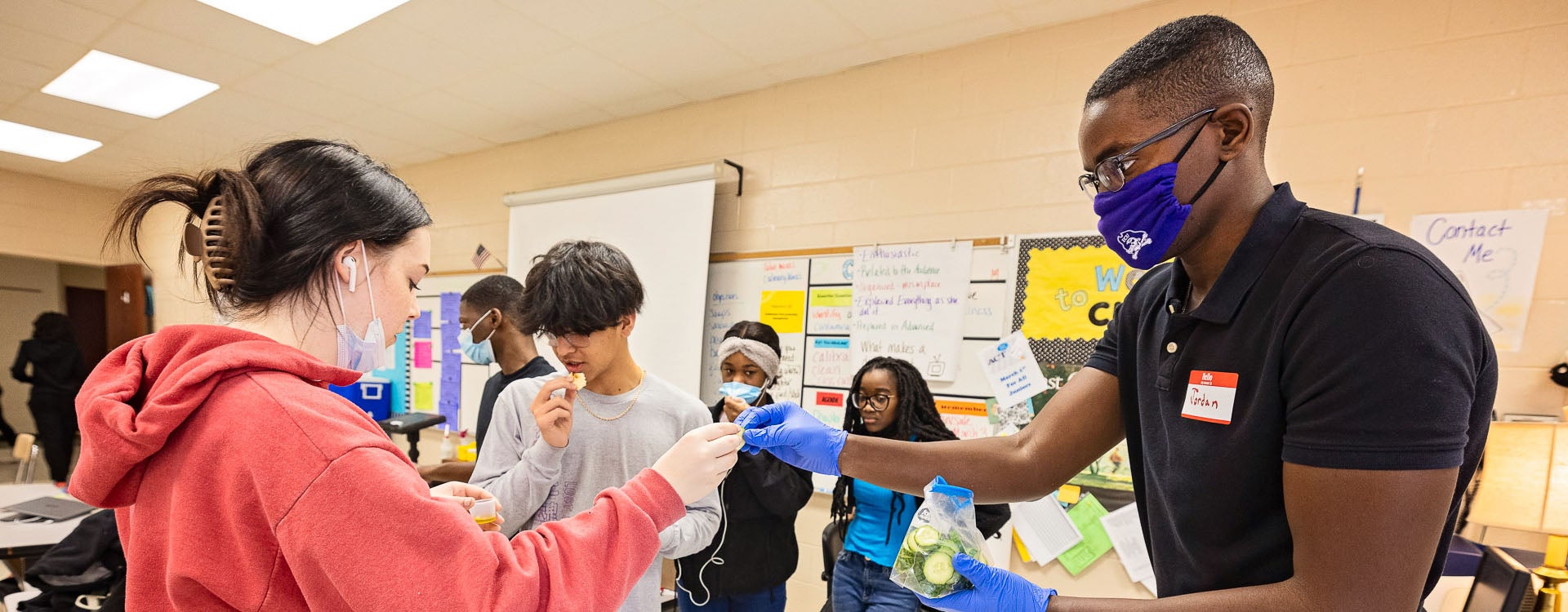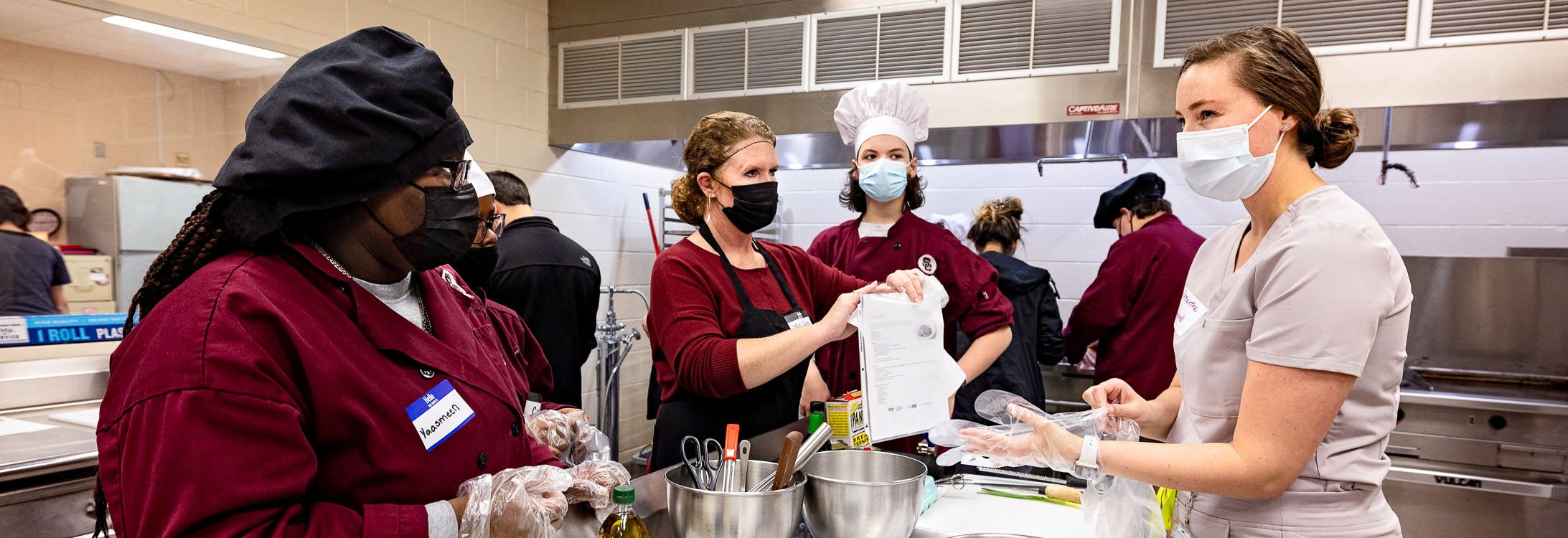MEDITERRANEAN DIET
ECU partners with local high schools on culinary medicine program
Evidence increasingly supports the idea that plant-based dietary patterns, such as the Mediterranean diet, may play an important role in the risk reduction of many chronic diseases.
To better educate patients and the community in the management of diet-related chronic disease, the Department of Family Medicine at East Carolina University’s Brody School of Medicine recently launched a culinary medicine program that highlights the links between food and health, as well as how the foundations of nutritional science can be linked with traditional medical interventions in clinical care.
“People who embrace that lifestyle tend to live longer, have less diabetes and heart disease, but it’s not well accepted in eastern North Carolina and there are a lot of barriers, like people don’t really understand it or they think it’s expensive. But what we know is it can be very well adapted to our region and with foods that we like here, if we learn to cook them just a little bit differently,” Director of ECU Health Nutrition Services Kay Craven said of the motivation to start the program.
On Feb. 24, family medicine residents from ECU and Vidant Health partnered with representatives from ECU’s College of Allied Health Science’s Department of Nutrition Science Dietetic Program and North Carolina State University Cooperative Extension Service to bring a culinary medicine event featuring the Mediterranean diet to South Central and J.H. Rose high schools in Pitt County.
This educational event was not one-sided, however, as the culinary arts students from both high schools educated the medical residents on how to properly prepare the meals — based on a trio of recipes from three different income levels — so they can effectively explain these techniques to patients.
“They are giving us step by step instructions on how to cut the food, prepare the food and how to cook the food, and they’re doing a really good job,” said Dr. Rebecca Laurine, a family medicine resident physician. “So, they’re teaching us cooking skills and we’re teaching them about the Mediterranean diet and how a healthy diet can help to mitigate some chronic health problems.”
The students enjoyed the opportunity to share their expertise with the health care experts in ways that could have tangible benefits for countless patients throughout eastern North Carolina.
“I like that I get to help people learn how to cook food and how to help other people,” said Caleb Stahl, a student at South Central High School. “(Mediterranean-style cooking) takes a little bit more time, but it’s a better way of eating and it’s going to be healthier than eating frozen meals, fast food or anything like that.”
They also look forward to seeing the benefits of the culinary medicine event closer to home.
“Doing this helps me learn a lot about it,” said Jani’ya Koonce, a student at South Central High School. “Hopefully, I can make it for my family at home.”

Jordan Harris, a graduate student in ECU’s Nutrition Science Program and a dietetic program intern, takes part in a culinary medicine event at South Central High School.
